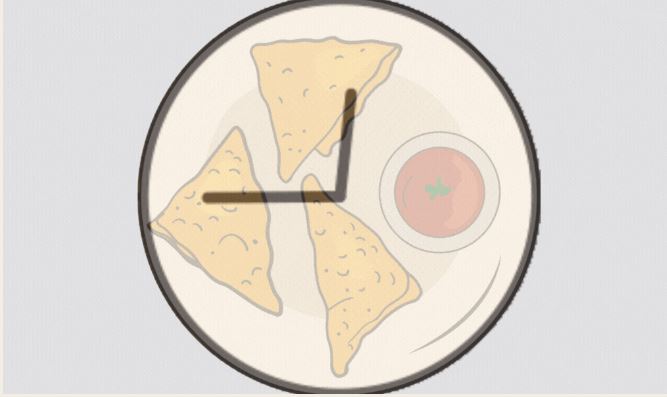Goa is abuzz with excitement as vintage bike and car owners, users, collectors and fans are decking […]

TASTY TRADITIONS AND A BITTER FUTURE: INDIA’S FIGHT AGAINST CHILDHOOD OBESITY NEEDS URGENCY!By Sunoor Verma
July 12- July 18, 2025, Life & Living July 11, 2025For every burger and cola, there’s a plate of chaat doused in sweetened chutneys, a glass of lassi brimming with sugar, or a festival box of mithai, rabri, and kulfi. Our traditional foods lovingly passed down through generations, are often sugar bombs in disguise.
India’s urban childhood obesity crisis is no longer a threat but a full blown crisis. The evidence is stark, the consequences generational, and the solutions, if we are bold enough, are within reach. Yet, the country’s response remains dangerously tepid, and the conversation worryingly simplistic.
Let’s be clear: this isn’t a story of chubby cheeks and outgrown uniforms. The latest National Family Health Survey (2019-2021) numbers show 3.4% of children under five are now overweight compared with 2.1% in 2015-16. That’s millions of children – mostly in cities and booming towns – already on the path to diabetes, heart disease, and a lifetime of medical bills. By 2030, India could account for one in 10 obese children globally. And no, this is not just a Western problem imported through fast-food chains. The roots of our crisis are far more homegrown.
For every burger and cola, there’s a plate of chaat doused in sweetened chutneys, a glass of lassi brimming with sugar, or a festival box of mithai, rabri, and kulfi. Our traditional foods lovingly passed down through generations, are often sugar bombs in disguise. In many families, a meal is not complete without a sweet finish, and street food culture – while vibrant and delicious – often means deep-fried, syrup-soaked, or calorie-dense treats. We cannot simply blame multinational brands and modern marketing; the truth is our culinary heritage, unmoderated and unmodernised, is part of the problem. The nostalgia for “pure, traditional” foods must be balanced with nutritional reality.
Urban prosperity has delivered a paradox: families with more money and education are now more likely to raise overweight children. The culprits are everywhere – packaged snacks masquerading as “healthy,” sugar-laden drinks and a food industry that targets children with relentless marketing. But also our own kitchens and sweet shops. Meanwhile, our cities have become playground deserts. The average child’s day is a blur of screens, chauffeured commutes, and after-school tuitions – leaving little time or space for play. Even in semi-urban India, as aspirations rise and local diets give way to processed convenience and indulgent traditional treats, the same trends are taking hold.
The COVID-19 pandemic turbocharged the crisis, with lockdowns leading to a 9% spike in childhood obesity among the youngest children. The double burden is now India’s signature: millions of children are still stunted from undernutrition, while millions more are tipping the scales in the opposite direction. It’s a public health contradiction that should shame our policymakers into action.
Ignored
The real tragedy? We already know what works and we’re ignoring it. Across the globe, countries with far fewer resources have shown the way. In Mexico, a tax on sugary drinks slashed sales and forced companies to rethink their products. Brazil’s schools are trying to ban junk food and teach children to cook, while South Africa’s multi-pronged school programmes are attempting to nudge obesity rates down. Even in the UK, targeted interventions in deprived communities have moved the needle on childhood obesity, proving that smart policy, not just parental willpower, makes the difference.
In India, our response has been piecemeal and polite. We tinker at the edges – pilot projects, awareness campaigns, and the occasional “no junk food” day at school. But where is the boldness? Where is the regulatory muscle to tax sugar, ban misleading food ads, or redesign our cities for active living? Where is the leadership to make daily physical activity as non-negotiable as maths homework or force the food industry – including traditional sweet manufacturers – to come clean about what’s in that “heritage” treat?
And crucially, where is the Ministry of Education in all this? Childhood obesity is not just a health issue; it is fundamentally an education issue. Schools are where lifelong habits are formed, yet health is still seen as someone else’s department. The Ministry of Education must take ownership – making nutrition literacy, honest food labelling, and daily physical activity central to every child’s school experience. It’s time to accept that a child’s ability to learn, thrive, and contribute to society is inextricably linked to their health.
What can schools do?
Let’s not underestimate the power of schools. In middle- and low-income countries, school-based interventions have been among the most effective levers for change. Brazil’s “School Health Programme” isn’t just about banning junk food; it teaches children to cook, to understand where their food comes from, and to take pride in healthy traditions. South Africa’s multi-component school programmes have combined physical activity, nutrition education, and community engagement to reduce obesity rates. In the United Kingdom, the HENRY programme, which is focused on the early years and delivered through community centres, aims to reduce obesity among the most deprived children from 9.4% to 8.8% over eight years. These examples show that when education ministries take the lead, change follows.
Yet, in India, the disconnect is glaring. We have put yoga on the international map, but its integration into children’s daily lives at home is mostly tokenistic. In most schools, yoga is a once-a-year photo op, not a daily practice. If we truly believe in the power of our traditions, let’s make yoga – and other forms of physical activity – a real, regular part of every school day, not just a cultural afterthought. Imagine if every child in India started their day with movement, mindfulness, and a sense of ownership over their own health. That is the kind of cultural shift we need.
What can families do?
The family, too, must be part of the solution – but not left to shoulder the burden alone. Parents need honest labelling, affordable healthy options, and clear guidance. It’s time to have frank conversations about both modern and traditional foods. Yes, a festival sweet is a joy, but should it be a daily staple? Can we revive traditional recipes with less sugar, more fibre, and smaller portions? Can we make the act of cooking together an occasion for learning, not just indulgence?
Urban design is another missing link. Our children need safe spaces to play, walk, and cycle. In cities like New York, redesigning streets and parks has increased physical activity among children. Why not in Mumbai, Delhi, or Lucknow? To see real change, we must invest in parks, playgrounds, and active transport – not just for the privileged but for every child.
This is not just a health issue – it’s an economic time bomb. If current trends persist, obesity-related diseases could cost India nearly half a trillion dollars by 2060. That money could have built schools, funded research, or powered innovation. Instead, it will be spent on treating preventable diseases, lost productivity, and – most heartbreakingly – lives cut short.
But let’s not pretend the future is written. India can still change course, and the blueprint is clear. Make schools the frontline: ban junk food, mandate daily exercise, and teach real nutrition – including honest conversations about modern and traditional foods. Empower parents with honest labelling and affordable healthy options – tax what harms our children and subsidise what helps them thrive. Rethink urban design so every child, not just the privileged few, can walk, cycle, and play safely – and above all, demand accountability – from the government, from industry, and from ourselves.
If we fail, the vision of a developed India by 2047 will be a hollow promise. Imagine a nation where a third of children are obese, where chronic disease is the norm before adulthood, and where healthcare costs and lost potential swallow economic growth. That is not the India we want to build.
The clock is ticking. Childhood obesity is not a slow-moving threat – it is here, now, and growing. The question is not whether we can act but whether we will. If we are serious about Viksit Bharat, it’s time to put children’s health – body, mind, and spirit – at the centre of our national agenda. The future will judge us, not by our intentions but by the health of our children.
Sunoor Verma is the Honorary President of The Himalayan Dialogues and an international expert in leadership & strategic communication and global health diplomacy. More on www.sunoor.net
Courtesy: The Wire














